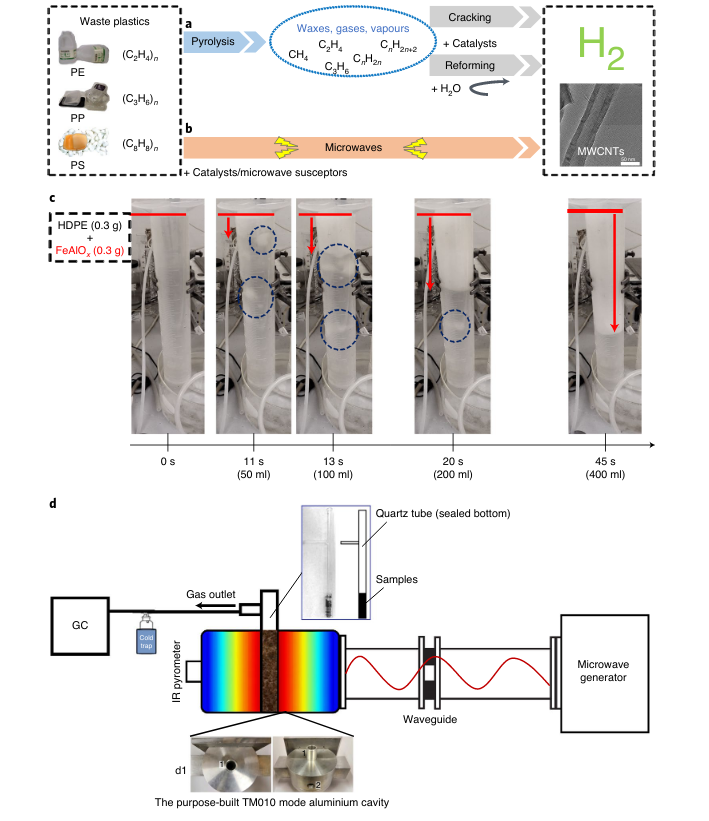
Between research about microplastics in the environment, China ceasing plastic recycling, and revelations about Big Oil's decades of disinformation about the recyclability of plastic overall, I've been feeling a sense of impending, plasticky doom.
pluralistic.net/2020/09/14/the…
1/
pluralistic.net/2020/09/14/the…
1/

But every now and again, I'll get a little cause for hope, some news story about an enzyme or catalytic process that can turn waste plastic into something useful without creating untold environmental wreckage.
2/
2/
Scientific papers like "Microwave-initiated catalytic deconstruction of plastic waste into hydrogen and high-value carbons" in @nature are incredibly promising!
nature.com/articles/s4192…
3/
nature.com/articles/s4192…
3/
I parsed it with the help of @j_timmer's layperson-friendly breakdown for Ars Technica.
The researchers mixed grocery-store waste-plastic with iron, then hit it with microwaves.
arstechnica.com/science/2020/1…
4/
The researchers mixed grocery-store waste-plastic with iron, then hit it with microwaves.
arstechnica.com/science/2020/1…
4/
The resulting reaction liberated vast amounts of hydrogen from the plastic, leaving behind carbon nanotubes. The majority of the iron was left unchanged, and they were able to mix fresh plastic in with it ten more times, leaving behind a 92% nanotube output.
5/
5/
Timmer points to a US synthetic biology group that has an idea for processing the hydrogen released in the process: an enzyme that, when mixed with porous silicon oxide, turns out lubricant, fuel, or other hydrocarbons based on tweaks to the process.
6/
6/
If you lack access to the paywalled version of the article and want to read it yourself, here's a @Sci_Hub mirror:
sci-hub.st/downloads/2020…
7/
sci-hub.st/downloads/2020…
7/
(The research was done at public universities, but a condition of publishing in Nature is signing over the rights, denying public access. Researchers are not paid by Nature for these rights, and their own institutions then have to pay to access their work)
eof/
eof/
• • •
Missing some Tweet in this thread? You can try to
force a refresh








